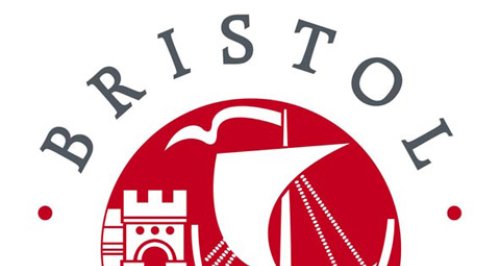Bristol Budget: Consultation Response
8 January 2014, 18:00

Around 4,000 people responded to this year's budget consultation, that's 12 times the level or reponse compared to last year.
The results show that over two thirds (69%) of respondents were in favour of a council tax rise of 2% or higher, with around half (49%) agreeing with most or all of the proposals for closing an almost £90m anticipated three year budget gap. Around one in seven (14%) gave no opinion on the proposals, while just over a third (37%) disagreed with most or all of the proposals.
Now the Mayor and his Cabinet will discuss the results at a Cabinet meeting on 16 January, when the Mayor will also table updates to his proposals. These will be recommended to Full Council, which will debate the final draft proposals and formally set the budget at a meeting on 18 February.
The consultation results will be debated in light of the council’s latest financial projections, which paint a slightly brighter picture than that anticipated when the consultation launched in November. The budget gap has dropped by around £4.5m due to various factors, including the government’s Autumn Statement which was more favourable than expected, mostly as a result of removing their proposal to slice almost a third from councils’ New Homes Bonus to fund Local Enterprise Partnerships. The 2014/15 budget has also been supported by a one-off £4m surplus in the council’s Collection Fund – meaning it collected more Council Tax than projected in last year’s budget.
These new incomes have been weighed against new costs such as the decision by Full Council in December to keep funding a Council Tax reduction scheme to the tune of just over £6m over three years. When all the different factors are taken in to account there is just over £4.5m available over the three years. This could be used in many different ways, including any mixture of reducing the proposed cuts, accepting the government’s Council Tax freeze grant or topping up the city’s depleted reserves to make the council more resilient to future cuts.
George Ferguson, Mayor of Bristol said:
'I am delighted with the level of response to this year’s consultation which is clearly a factor of the massive increased effort that we invested in the process. Overall there was a very realistic and constructive attitude from respondents which has shown some clear priorities when it comes to services.
'It is a very complex debate and I have been carefully considering all of the responses, particularly in light of coordinated lobbying on specific issues and taking in to account proposals which people may disagree with in spite of the fact that some are actually designed to improve services.
'The good news is that alongside our improved financial position there is now some room for amending the proposals. I will continue examining the results and discussing them with my Cabinet and Party Group Leader colleagues before proposing amendments next week.'
The consultation response came from people who are largely representative of the demographic spread of Bristol. Young people, BME and disabled communities were less represented in the consultation responses, although this was countered by holding specific meetings and seeking responses from community, voluntary and equalities groups. These are being published in full alongside the consultation report.
The consultation was one of the widest reaching the council has ever conducted, including an online survey, nine public meetings attended by the mayor, direct emails to 35,000 residents, radio phone in, a live web chat and paper information packs (including paper surveys) distributed to libraries, citizen service points and directly on request.
The following top ten lists show the main areas of agreement or disagreement from respondents. Two proposals – reviewing public toilet provision and removing subsidy for leisure and sport contracts - appear in both lists, demonstrating a split in public opinion with support and opposition on both sides. Other proposals feature in the top ten following a coordinated bulk response from one particular group representing older people.
The common proposals for disagreement, with most opposed first, are:
- •Cease older people’s warden and alarm services in independent older people housing schemes
- •Commissioning home care against re-ablement outcomes
- •Cease funding for a specialist floating support service for older people
- •Introduce charges for older people’s housing alarms in sheltered schemes
- •Health and Social Care Housing related support
- •Review of housing related support to independent sector sheltered housing schemes for older people
- •Reduce older people Extra Care Housing Wardens
- •Review public toilet provision
- •Cease library non-statutory services – Prison Service and Schools library service. Redesign At Home Delivery Service
- •Remove subsidy for leisure and sports contracts
The common proposals for agreement, with most supported first, are:
- •Reduce the running cost of council buildings
- •Increase mooring charges at City Docks
- •Ensuring cost duplication is minimised
- •Remove subsidy for leisure and sports contracts
- •Expand community supported accommodation to reduce spend on residential care
- •Provision of equipment to reduce need for multiple carers
- •Better value for money from residential and nursing placement contracts
- •Challenge Council spending
- •Eliminate subsidy to St Paul’s learning centre and explore other options
- •Review public toilet provision
Top 25 lists and the full breakdown of the consultation response is available in the Budget Consultation Feedback Report, which will be published online at www.bristol.gov.uk/budget by 9 January.

